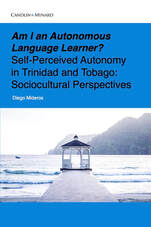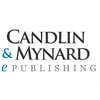Am I an Autonomous Language Learner? Self-Perceived Autonomy in Trinidad and Tobago: Sociocultural Perspectives by Diego Mideros (Autonomous Language Learning Series) [ Apple | ePub | Kindle | Perlego | Print | Scribd ]

Watch an interview with the author
This book explores sociocultural elements and conditions that enable individuals to see themselves as autonomous learners in formal educational settings. This engaging and original book is set in a university context in Trinidad and Tobago. Using an in-depth Interpretative Phenomenological Analysis, the author brings to life the stories of students majoring in Spanish at university. In order to understand the learners’ autonomy and agency, the author focuses on social dimensions of language learner autonomy. The book aims to understand the contextual and sociocultural teaching and learning practices which are conducive to students constructing the identity of autonomous language learners.
The exploration of autonomy in Trinidad and Tobago took place at a university with thirty Spanish majors. The author answers the following questions in the book:
How do students describe their approaches to studying Spanish in a specialist university degree programme? And what do those approaches suggest about their autonomy?
What can students’ previous lived experiences tell us about their sociocultural context for L2 learning and the development and exercise of autonomy?
This book is highly recommended for language educators and students of applied linguistics who want to understand learner autonomy and agency from a sociocultural perspective.
This book will be particularly useful to language educators interested in voices and perspectives that come from a developing region that has been underrepresented in the literature. In addition, the book might also be useful for teachers and researchers interested in Interpretative Phenomenological Analysis, a relatively new qualitative methodology in the study of autonomy in language learning. The book provides tools and ideas for investigating students’ past school experiences that could explain their agency, identity and readiness for autonomy.
This book explores sociocultural elements and conditions that enable individuals to see themselves as autonomous learners in formal educational settings. This engaging and original book is set in a university context in Trinidad and Tobago. Using an in-depth Interpretative Phenomenological Analysis, the author brings to life the stories of students majoring in Spanish at university. In order to understand the learners’ autonomy and agency, the author focuses on social dimensions of language learner autonomy. The book aims to understand the contextual and sociocultural teaching and learning practices which are conducive to students constructing the identity of autonomous language learners.
The exploration of autonomy in Trinidad and Tobago took place at a university with thirty Spanish majors. The author answers the following questions in the book:
How do students describe their approaches to studying Spanish in a specialist university degree programme? And what do those approaches suggest about their autonomy?
What can students’ previous lived experiences tell us about their sociocultural context for L2 learning and the development and exercise of autonomy?
This book is highly recommended for language educators and students of applied linguistics who want to understand learner autonomy and agency from a sociocultural perspective.
This book will be particularly useful to language educators interested in voices and perspectives that come from a developing region that has been underrepresented in the literature. In addition, the book might also be useful for teachers and researchers interested in Interpretative Phenomenological Analysis, a relatively new qualitative methodology in the study of autonomy in language learning. The book provides tools and ideas for investigating students’ past school experiences that could explain their agency, identity and readiness for autonomy.
Contents
- Chapter 1: Exploring ‘Autonomy as a Universal Human Capacity’ in Trinidad and Tobago
- Chapter 2: Autonomy: A Matter of Approach
- Chapter 3: Autonomy and Self-Assessment
- Chapter 4: Autonomy: An Enacted Phenomenon
- Chapter 5: Autonomy and Past Lived Experiences: “We Were Encouraged to Use the Language”
- Chapter 6: Understanding Students’ Self-Perceived Autonomy
- Chapter 7: Lessons Learned and The Way Forward
- References
- Appendices
Reviews
Diego Mideros' book contributes to the ever-expanding body of work on learner autonomy in language learning by investigating the beliefs and study approaches of language learners in a previously unexplored context: undergraduate students of Spanish at the University of the West Indies in Trinidad and Tobago. Diego's finding that the most autonomous learners were those who had been encouraged by previous teachers to become active users of the (Spanish) language is a timely reminder for teachers to help expand their learners' horizons beyond the classroom. His study also identified the harmful role sometimes played by formal assessment in students' language learning experiences - promoting a tendency to learn only what the test/exam included and ignoring other opportunities and resources. Diego's conclusion that greater attention needs to be paid to exploring learners' beliefs about language learning echoes the calls of numerous Learner Autonomy researchers over the years (Paula Kalaja, Nae-Dong Yang, Philip Riley, Cynthia White and Sara Cotterall).
Sara Cotterall
The book is an eye-opening opportunity for me to participate in Diego’s exploratory journey into his engagement with a group of Spanish language learners in Trinidad and Tobago. Documenting this journey in a highly accessible, engaging narrative, Diego has shown how the learners’ autonomy can be understood as ‘a sociocultural strategic academic endeavor’ with reference to the exam-driven learning culture and their prior lived experiences. While Diego discovered ‘a great source of information’ by inviting his students to share and reflect on their experiences, I am excited to see how he uses the full potential of language learners’ experiences to generate critical insights into their autonomous language learning. The book also convinces me that language teachers should engage language learners in discussing and reflecting on language learning to get better control over it.
Xuesong (Andy) Gao, University of New South Wales, Australia
This book offers a welcome exploration of how sociocultural perspectives might enrich our understanding of learner autonomy. In doing so, it takes a detailed look at the ways in which sociocultural elements can impact the development of language students’ identity as autonomous learners. Notably, it provides insights into the role teachers can play in fostering the emergence of this aspect of their learners’ identity. Although it focuses on a particular language learning situation, the book is wide enough in scope to be of interest to researchers, teachers and administrators working in various contexts.
Garold Murray
Sara Cotterall
The book is an eye-opening opportunity for me to participate in Diego’s exploratory journey into his engagement with a group of Spanish language learners in Trinidad and Tobago. Documenting this journey in a highly accessible, engaging narrative, Diego has shown how the learners’ autonomy can be understood as ‘a sociocultural strategic academic endeavor’ with reference to the exam-driven learning culture and their prior lived experiences. While Diego discovered ‘a great source of information’ by inviting his students to share and reflect on their experiences, I am excited to see how he uses the full potential of language learners’ experiences to generate critical insights into their autonomous language learning. The book also convinces me that language teachers should engage language learners in discussing and reflecting on language learning to get better control over it.
Xuesong (Andy) Gao, University of New South Wales, Australia
This book offers a welcome exploration of how sociocultural perspectives might enrich our understanding of learner autonomy. In doing so, it takes a detailed look at the ways in which sociocultural elements can impact the development of language students’ identity as autonomous learners. Notably, it provides insights into the role teachers can play in fostering the emergence of this aspect of their learners’ identity. Although it focuses on a particular language learning situation, the book is wide enough in scope to be of interest to researchers, teachers and administrators working in various contexts.
Garold Murray
About the Author

Diego Mideros is a Lecturer in Spanish at The University of the West Indies, St. Augustine Campus in Trinidad and Tobago. He holds a PhD in Linguistics awarded by the same university. His research interests include autonomy and agency in language learning, L2 learner identity, sociocultural approaches to L2 learning research, among others. He is a passionate qualitative teacher-researcher with a particular interest in phenomenology. He was one of the conveners of the AILA Research Network on Learner Autonomy from 2018 to 2021.
Presentations and events
7th LAb session organised by the Research Institute for Learner Autonomy Education. 3rd December, 2021. Agency and learner autonomy.
Sociocultural agency: A vehicle to enhance our understanding of learner autonomy.
Abstract: In this presentation, I will discuss how the sociocultural construct of agency has enhanced my own understanding and research of learner autonomy among university students of Spanish in Trinidad and Tobago. I shall first discuss some theoretical elements and definitions that lead me to view agency and autonomy as two closely related but theoretically different constructs. I will then introduce a study where I employed sociocultural perspectives (Oxford, 2003), and more specifically identity theory (Norton, 2000, 2013), to examine my students’ autonomy.
LINK to recorded presentation
Sociocultural agency: A vehicle to enhance our understanding of learner autonomy.
Abstract: In this presentation, I will discuss how the sociocultural construct of agency has enhanced my own understanding and research of learner autonomy among university students of Spanish in Trinidad and Tobago. I shall first discuss some theoretical elements and definitions that lead me to view agency and autonomy as two closely related but theoretically different constructs. I will then introduce a study where I employed sociocultural perspectives (Oxford, 2003), and more specifically identity theory (Norton, 2000, 2013), to examine my students’ autonomy.
LINK to recorded presentation
Publication details
Publication date: December 2021
Ebook, $9.99
Print book, 143 pages, $29.99
Series: Autonomous Language Learning
ISBN (ebook): 9781005019228 [purchase ePub]
ISBN (print): 9798777360960 [purchase on Amazon]
DOI: https://doi.org/10.47908/20
Series editor: Jo Mynard
Title advisor: Garold Murray
Ebook, $9.99
Print book, 143 pages, $29.99
Series: Autonomous Language Learning
ISBN (ebook): 9781005019228 [purchase ePub]
ISBN (print): 9798777360960 [purchase on Amazon]
DOI: https://doi.org/10.47908/20
Series editor: Jo Mynard
Title advisor: Garold Murray
